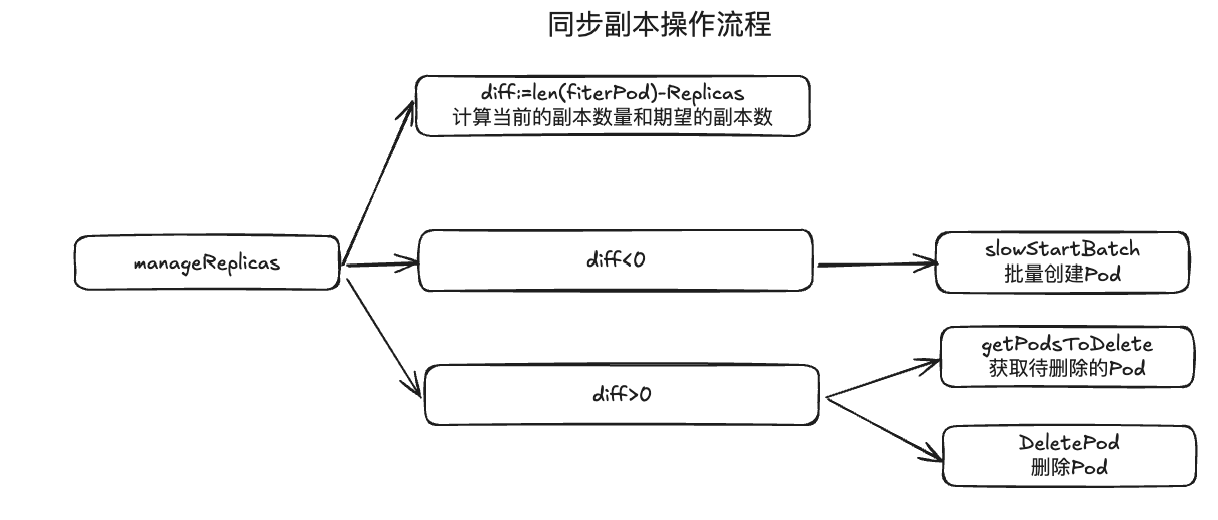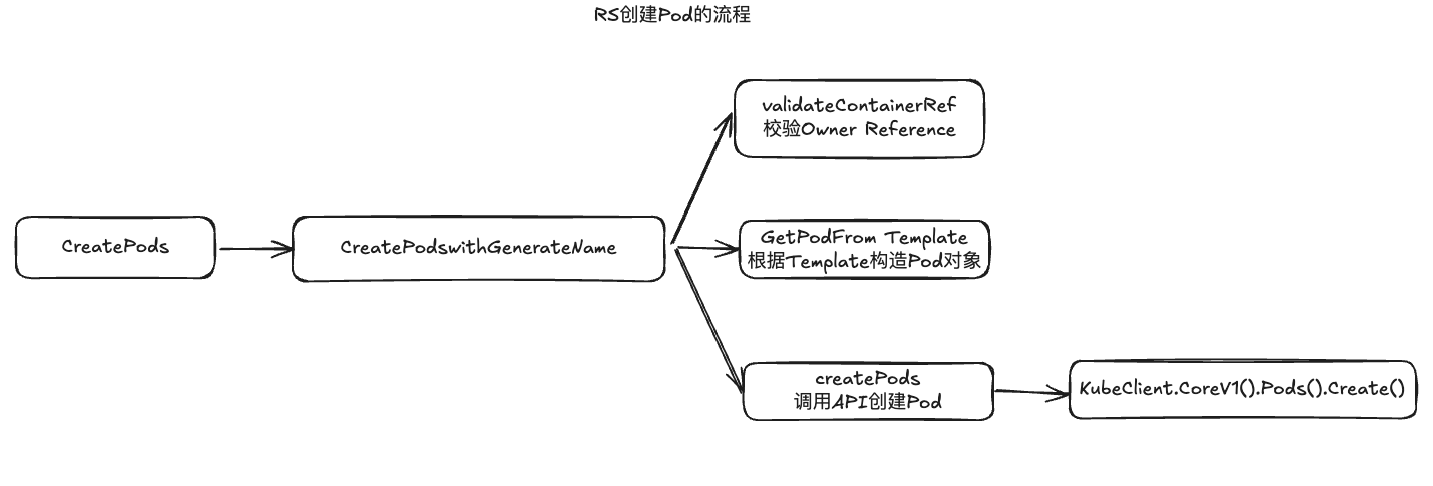1
2
3
4
5
6
7
8
9
10
11
12
13
14
15
16
17
18
19
20
21
22
23
24
25
26
27
28
29
30
31
32
33
34
35
36
37
38
39
40
41
42
43
44
45
46
47
48
49
50
51
52
53
54
55
56
57
58
59
60
61
62
63
64
65
66
67
68
69
70
71
72
73
74
75
76
77
78
79
80
81
82
83
84
85
86
87
88
89
90
91
92
93
94
95
96
97
98
99
100
101
102
103
104
105
106
107
108
109
110
111
|
func (rsc *ReplicaSetController) manageReplicas(ctx context.Context, filteredPods []*v1.Pod, rs *apps.ReplicaSet) error {
diff := len(filteredPods) - int(*(rs.Spec.Replicas))
rsKey, err := controller.KeyFunc(rs)
if err != nil {
utilruntime.HandleError(fmt.Errorf("couldn't get key for %v %#v: %v", rsc.Kind, rs, err))
return nil
}
if diff < 0 {
diff *= -1
if diff > rsc.burstReplicas {
diff = rsc.burstReplicas
}
rsc.expectations.ExpectCreations(rsKey, diff)
klog.V(2).InfoS("Too few replicas", "replicaSet", klog.KObj(rs), "need", *(rs.Spec.Replicas), "creating", diff)
successfulCreations, err := slowStartBatch(diff, controller.SlowStartInitialBatchSize, func() error {
err := rsc.podControl.CreatePods(ctx, rs.Namespace, &rs.Spec.Template, rs, metav1.NewControllerRef(rs, rsc.GroupVersionKind))
if err != nil {
if apierrors.HasStatusCause(err, v1.NamespaceTerminatingCause) {
return nil
}
}
return err
})
if skippedPods := diff - successfulCreations; skippedPods > 0 {
klog.V(2).Infof("Slow-start failure. Skipping creation of %d pods, decrementing expectations for %v %v/%v", skippedPods, rsc.Kind, rs.Namespace, rs.Name)
for i := 0; i < skippedPods; i++ {
rsc.expectations.CreationObserved(rsKey)
}
}
return err
} else if diff > 0 {
if diff > rsc.burstReplicas {
diff = rsc.burstReplicas
}
klog.V(2).InfoS("Too many replicas", "replicaSet", klog.KObj(rs), "need", *(rs.Spec.Replicas), "deleting", diff)
relatedPods, err := rsc.getIndirectlyRelatedPods(rs)
utilruntime.HandleError(err)
podsToDelete := getPodsToDelete(filteredPods, relatedPods, diff)
rsc.expectations.ExpectDeletions(rsKey, getPodKeys(podsToDelete))
errCh := make(chan error, diff)
var wg sync.WaitGroup
wg.Add(diff)
for _, pod := range podsToDelete {
go func(targetPod *v1.Pod) {
defer wg.Done()
if err := rsc.podControl.DeletePod(ctx, rs.Namespace, targetPod.Name, rs); err != nil {
podKey := controller.PodKey(targetPod)
rsc.expectations.DeletionObserved(rsKey, podKey)
if !apierrors.IsNotFound(err) {
klog.V(2).Infof("Failed to delete %v, decremented expectations for %v %s/%s", podKey, rsc.Kind, rs.Namespace, rs.Name)
errCh <- err
}
}
}(pod)
}
wg.Wait()
select {
case err := <-errCh:
if err != nil {
return err
}
default:
}
}
return nil
}
|




